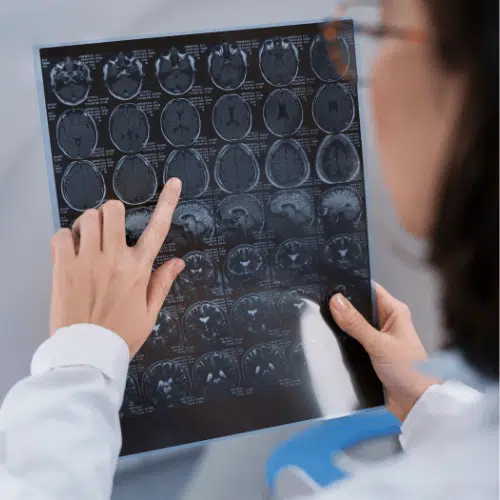Not known Details About Axis Spine And Orthopedics
Not known Details About Axis Spine And Orthopedics
Blog Article
Not known Facts About Axis Spine And Orthopedics
Table of ContentsThe smart Trick of Axis Spine And Orthopedics That Nobody is DiscussingAxis Spine And Orthopedics for DummiesA Biased View of Axis Spine And OrthopedicsGetting The Axis Spine And Orthopedics To Work
An orthopedic specialist is a medical professional that specializes in dealing with problems of the bones, joints, and connective cells, and guaranteeing you preserve a healthy and balanced musculoskeletal system., we have actually very qualified orthopedic specialists that are qualified of dealing with individuals of all ages. I obtained included in research study throughout my first year of medical school, and I began making connections with orthopedic specialists early on.
Talk about the post-operative treatment plan with your doctor. Organize for transport to and from the medical facility on the day of surgery.
Getting My Axis Spine And Orthopedics To Work

Your physician will give plenty of information regarding post-operative treatment, consisting of how to remain tidy and keep the surgical area clean. Complying with these tips can prepare you literally and mentally for your orthopedic surgical procedure. Keep in mind to maintain a positive expectation and depend on your clinical team's proficiency, adding to a smoother recuperation process.

Nobody expects you to recognize anything, so don't attempt to memorize a lot of random realities. Or else, joint discomfort can really mess up your life.
Usual problems treated by orthopedic doctors are: Cracks and Bone Injury: Broken bones and other injuries from crashes or impacts. Bone Cancer: Growths in the bones. Orthopedic Injury: Extreme injuries influencing bones, joints, or soft tissues.
Strains and Strains: Injuries to tendons and muscular tissues. Tendinitis: Swelling of the ligaments. Orthopedic specialists perform a variety of procedures to assist individuals with musculoskeletal concerns. Usual examples are knee and hip substitutes. Joint Restoration: Restoring a harmed joint to restore its feature. Bone Grafting: Taking bone from one part of the body and transplanting it to another location to fix and rebuild damaged bones. Reconnecting Nerves: Fixing broken nerves to restore motion and experience. Back Disk Substitute: Replacing a harmed back disk with a man-made one to relieve discomfort and recover feature. You'll need to take and pass the Medical University Admission Examination( MCAT). This standardized test assesses your understanding and skills required for success in medical institution. Medical college is an intense

Axis Spine And Orthopedics Things To Know Before You Buy
Next off, they complete an orthopedic residency. It's commonly five years and provides hands-on understanding in a medical setup. Appointments usually consist of: Reviewing your signs and symptoms, look at more info medical background and way of living.
Therapy recommendations. Some conditions need additional imaging, like a CT scan or MRI for more comprehensive views of the uncomfortable area. Your orthopedist will certainly suggest treatments to lower signs and symptoms till you get a medical diagnosis. Orthopedic specialists specialize in nonsurgical and medical strategies. For specific kinds of orthopedic trauma or hereditary problems, surgery is frequently the first line of treatment. For a lot of other problems, orthopedists try nonsurgical treatments. It may take even more than one kind of treatment to achieve long lasting alleviation. Choosing the right is crucial for effective surgical outcomes and enhanced person recovery. With a large range of options readily available in the marketplace, it can be overwhelming for both cosmetic surgeons and people to make an educated choice. The top five factors to take into consideration when picking an orthopedic implant are surgical compatibility, cost-effectiveness, factors to consider for revision surgical treatment, patient-specific aspects, and the style and advancement of the implant. They can be found in different forms, sizes, and materials, each serving a certain purpose based on the patient's requirements. Understanding the essentials of orthopedic implants is essential before diving right into the decision-making procedure. One of the leading factors to consider when picking an orthopedic implant is its compatibility with the surgery. Various implants are developed for different surgical strategies and strategies. The orthopedic dental implant must be particularly designed to fit the client's composition and ensure security throughout the healing process. Surgical compatibility entails aspects such as implant dimension, shape, and product. The success of orthopedic treatments depends heavily on the correct option and positioning of implants that are suitable with the client's anatomy and case history. By prioritizing patient safety and security and wellness, orthopedic doctors can accomplish effective outcomes and provide the finest quality of like their individuals. Doctors need to very carefully take into consideration the biomechanical residential or commercial properties of the dental implant and how it will integrate with the person's bone framework. This will contribute to much better medical outcomes, decreased problems, and shorter recovery time. When selecting implants for a patient, it is necessary to think about a variety of patient-specific aspects that can influence the success and result of the treatment. These variables encompass the client's age, bone quality and amount, oral health and wellness status, case history, way of life practices, and visual choices. For older clients with jeopardized bone density, shorter implants or grafting procedures might be valuable to offer the needed stability and assistance. 3. Is the size of the orthopedic dental implant a vital consideration? Just how does it affect the procedure and the patient's recuperation? Yes, the size of the dental implant is essential as it should match the patient's structure for proper fit and capability. 4. Can the individual's age and way of living play a duty in picking one of the most suitable orthopedic dental implant? Definitely. Just how does the cost of an orthopedic dental implant element right into the decision-making process, and exist ways to stabilize quality with price? The cost of the dental implant is a vital consideration, but it must not be the sole determining factor. Stabilizing high quality with price includes considering different implant alternatives 'lasting advantages and potential issues. Report this page